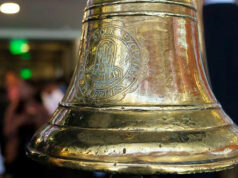Consumers less bullish as 2018 starts
By Melissa Luz T. Lopez
Senior Reporter
FILIPINO CONSUMERS turned less upbeat as the year opened due to expectations that prices of goods would keep rising, the Bangko Sentral ng Pilipinas (BSP) reported on Monday.
The latest Consumer Expectations Survey (CES) yielded a 1.7% net confidence score for January-March, plunging from 9.5% during the fourth quarter of 2017 and the 8.7% recorded in last year’s first three months.
The first-quarter reading is likewise the lowest since a -6.4% net score in the second quarter of 2016.
The central bank conducted the survey among 5,569 households last Jan. 24-Feb. 3.
A positive reading means optimistic respondents still outnumbered pessimists.
Respondents were asked on local economic conditions and their family’s financial situation and income.
“For the first quarter of 2018, consumer confidence waned across all three indicators due to the anticipated increase in prices,” Rosabel B. Guerrero, senior director of BSP’s Department of Economic Statistics, said in a press briefing.
More consumers have remained optimists, as reflected by a positive confidence index, since the third quarter of 2016, when President Rodrigo R. Duterte assumed office. Prior to that, quarterly confidence scores were negative, showing that more residents were doubtful of local prospects.
Respondents grew less sanguine due to higher prices of goods, low income, and rising household expenses, the BSP said in a report. An increase in household debt, poor harvest and the occurrence of typhoons and other calamities are also sources of concern for consumers.
Republic Act No. 10963, or the Tax Reform for Acceleration and Inclusion (TRAIN) law that took effect Jan. 1, reduced personal income tax rates but offset foregone revenues by removing some value-added tax breaks; raising fuel, automobile, mineral and coal excise tax rates, among other items; as well as imposing new levies on sugar-sweetened drinks and cosmetic surgery.
More low-income households said they were pessimistic, with the net score falling to -8.5% from -0.6% previously. Middle and high-income families remained upbeat, but less so when compared to a quarter ago.
Respondents also turned less bullish for the next three months, with the reading falling to 8.8% from 17.5% in 2017’s fourth quarter and a year-ago 16.5%.
The same held true for the year ahead, with the reading easing to 24% from 32% and 31.7%, respectively.
Respondents expect prices to keep rising in the months ahead, with the BSP noting that “Increased spending was expected on electricity, food, non-alcoholic and alcoholic beverages, fuel, water and transportation, indicating the inflationary pressures could come from these goods and services.”
Fewer families also expect to make big-ticket purchases. “There could be some moderation in household consumption… but it remains to be seen how consumers will act later on when they adjust to the prices that they see,” BSP Assistant Governor Francisco G. Dakila, Jr. said separately when asked about growth prospects for the quarter.
Households also grew bearish on the Philippine economy, with a net score of -0.1% reverting from the fourth quarter’s 10.9%.
Consumers expect inflation to pick up further to average 4.7% this year under 2006 prices, well above the 2-4% target range set by the BSP. Interest rates and unemployment are also seen to keep rising, while the peso is expected to weaken further versus the dollar.




